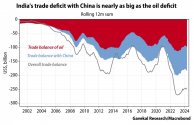Japan’s Unemployment Rate Unexpectedly Falls to 4.9%
By Aki Ito - March 2 (Bloomberg)
apan’s unemployment rate unexpectedly fell in January.
The jobless rate dropped to 4.9 percent from a revised 5.2 percent in December, the statistics bureau said today in Tokyo. The median forecast of 25 economists surveyed by Bloomberg News was for the rate to be unchanged from a preliminary 5.1 percent.
A decline in the unemployment rate is one of the first signs that a rebound in exports is starting to benefit workers, whose job prospects falter last year during Japan’s worst postwar recession. It may still be too early to expect “clear improvements” in the labor market because companies still have excess workers, said economist Tatsushi Shikano.
“The job market is no longer worsening,” Shikano, senior economist at Mitsubishi UFJ Securities Co. in Tokyo, said before today’s report. “But I’m afraid the recovery from here will be weak.”
The unemployment figures were revised to reflect a change in seasonal adjustments, the government said. Household spending climbed 1.7 percent in January, a separate report showed today.
In other signs the labor market is past its worst, the job- to-applicant ratio rose to 0.46, meaning there are 46 positions for every 100 candidates, the Labor Ministry said today. Historical figures revised to reflect new seasonal adjustments showed it was the first increase since September.
The same report showed there were 85 newly advertised jobs in January for every 100 people who started looking for a job that month, marking a second monthly increase. Analysts regard the gauge as a leading indicator of employment.
Prolonged Stagnation
Even so, Japan is likely to see a prolonged stagnation in employment because of deflation, Tetsufumi Yamakawa, chief Japan economist at Goldman Sachs Group Inc., wrote in a report. Slumping prices are squeezing profit margins, requiring firms to slash costs, he said.
Consumer prices excluding food and energy dropped 1.2 percent in January, matching December’s record decline, the government said last week. Finance Minister Naoto Kan renewed calls on the Bank of Japan to help arrest deflation yesterday, saying he hopes prices will rise this year, while Financial Services Minister Shizuka Kamei said the bank could underwrite government debt to fund fiscal stimulus needed to support the economy.
Nisshinbo Holdings Inc. said last month it will eliminate 150 positions at its Nisshinbo Industries unit as it aims to reduce its domestic facilities. Business deteriorated as a result of falling prices, according to the maker of textiles and chemical products.
Best Denki Co., a consumer electronics retailer, said yesterday it will shut 63 stores by February 2012 and is in talks with its labor union to cut jobs. The company may pare about 1,000 jobs, or 20 percent of its workforce, through an early retirement program and a reduction in new hiring, Kyodo News reported yesterday, citing unidentified sources.
Others are trimming their hiring plans. Mizuho Financial Group Inc., Japan’s third-largest bank by market value, has announced that it will hire 34 percent fewer graduates for the fiscal year starting April 2011.
========================================================================
Japan Scrambles to Avoid Being the Next Greece
Increasing sales tax is most likely option, as bond-rating firms grow worried about nation's massive borrowing
TOKYO—Will global markets start to treat Japan as the next Greece?
Bond traders up to now have been relatively sanguine about Tokyo's massive pile of government debt. But that attitude could be tested over the next three months, as Japan's new center-left government nears a self-imposed June deadline for crafting a plan to get its fiscal house in order. Out-of-control sovereign debt is what plunged Greece into crisis.
The main tool being considered to address Japan's debt problem is an increase in the sales tax, which at 5% is among the lowest in the industrialized world. In Europe, such taxes run closer to 20%. But members of Prime Minister Yukio Hatoyama's cabinet also worry that a tax increase could hammer consumer spending and push the country back into recession.
[...]
Experts generally agree an increase in the sales tax is inevitable, but differ on how it should be implemented. Some argue any increase should be phased in slowly and not started until it's clear it won't kill Japan's economic recovery.
Japan has gone down this road before. A 1997 sales-tax increase triggered a sharp drop in consumption and was blamed for pushing the economy back into a slump and sparking a broaddecline in prices for goods and services in the economy.
The tax idea faces opponents inside the government too. International Affairs Minister Kazuhiro Haraguchi, said, "I'd like to point out boosting tax burdens when [Japan's] regions and economy are fatigued like this would only result in lower tax revenues."
But others argue that, done right, a tax increase could aid economic recovery. For instance, Toshihiro Nishibori, a University of Tokyo economics professor, said the government should start raising sales taxes now, but spread it over 10 yea
rs by increasing it by one percentage point every year.
This method, Mr. Nishibori explains, will not just soften the blow to consumers but would help reverse deflation by creating inflationary expectations. According to this logic, consumers would be expected to slash spending if the tax is suddenly raised by 10%. But if it goes up gradually, with the knowledge that it will keep climbing, people will continue to spend.
"In this way, a tax hike will work as economic stimulus while at the same time improving fiscal conditions," Mr. Nishibori said.
Japan's financial health has deteriorated over the past two decades and, by some measures, Japan's fiscal health is among the worst among major economies.
The nation's gross government debts soared to 229% of its GDP this year, compared with 92% for the U.S. and 118% for Italy, according to the International Monetary Fund.
Still, some experts say worries about Japan's debts are overblown.
"The chance of Japan defaulting on its debt is very small and a spike in long-term interest rates is a risk for a few years down the road," said Tomoya Masanao, a fund manager watching Japan at bond fund Pimco.
Also working in Japan's favor is the fact that nearly 95% of its outstanding government debt is held by domestic investors, a group who has few other investment options. In the U.S., foreigners hold roughly a quarter of the outstanding Treasury notes, making the market inherently more unstable.
========================================================================
European Jobless Rate Held at Highest in 11 Years in January
March 01, 2010, 6:21 AM EST
Europe’s jobless rate remained at the highest in more than 11 years in January, suggesting the euro-region economy may struggle to gather strength.
Carrefour SA, Europe’s largest retailer, is among European companies cutting jobs to shore up earnings, in turn hurting consumer demand. The euro-area recovery almost ground to a halt in the fourth quarter and economic confidence declined in February. The European Commission said last week that growth may only gain momentum near the end of 2010.
“We expect unemployment to rise toward around 11 percent by year-end,” said Costa Brunner, an economist at Natixis in Frankfurt. “Consumer spending will stagnate this year and a recovery will remain weak with moderate growth.”
Europe’s economy may expand 0.2 percent in the first, second and third quarters and 0.3 percent in the three months through December, the European Commission said on Feb. 25. In the last quarter of 2009, the economy grew 0.1 percent.
Adding to signs of a faltering recovery, expansion in Europe’s services and manufacturing industries stabilized in February and European investor confidence dropped last month. European retail sales remained unchanged in December after declining in the previous month. ...
Last edited:



